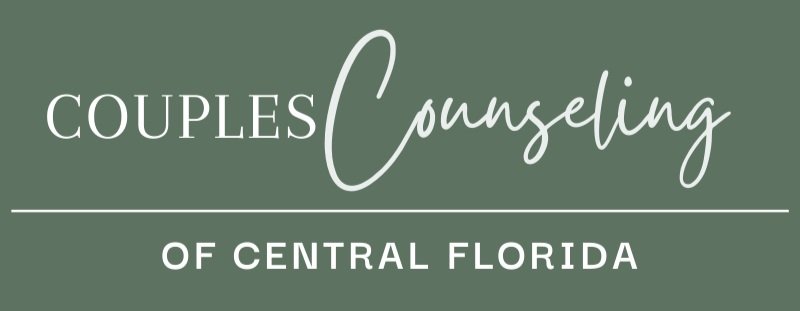How to find a polyamory friendly therapist near you
Finding a therapist who specializes in polyamory and other forms of ethical non-monogamy can be a challenge, especially if you live in an area where there are few therapists who are knowledgeable in these areas. However, with some effort and persistence, you can find a therapist who is equipped to support you in your relationship journey. Here are some tips to help you find the right therapist for you:
1. Know what you're looking for in a therapist
Before you start your search to better your mental health, it's important to understand what you're looking for in a therapist. Are you seeking support for a specific issue in your relationship? Or are you looking for guidance in navigating the complexities of non-monogamous relationships? Knowing what you need from a therapist can help you find someone who is well-suited to meet your needs.
Try typing into your search engine your key issue that you’d like to work on + therapist + city near you. For example: “Therapist for jealousy in polyamory in Charleston, South Carolina.”
2. Ask someone you trust who they’d recommend for relationship therapy
If you know someone in the polyamory or non-monogamous community, ask for recommendations for therapists who specialize in these areas. Word-of-mouth recommendations can be extremely helpful in finding a therapist who is a good fit for you.
Go to a local Dungeon? Ask them who they’d recommend! Have a favorite lifestyle friendly resort you like to frequent? See who their go-to therapist might be.
3. Check online therapist directories for your specific needs
There are several online directories, such as Poly-Friendly Professionals and Kink Aware Professionals, that maintain lists of therapists who specialize in polyamory and other forms of ethical non-monogamy. These directories can be a great resource for finding affirming CNM and Kink counselors in your area.
4. Look for therapists who are knowledgeable and open-minded to ENM
When you find a therapist who you're interested in working with, it's important to ask about their experience and comfort level with non-monogamous relationships. You want to find a therapist who is knowledgeable and open-minded, and who is willing to listen and support you without judgment.
Some example questions to ask a therapist during a free consultation or a quick email are:
Do you have experience working with non-monogamous clients?
What is your understanding of polyamory and other forms of ethical non-monogamy?
Are you comfortable working with clients who have multiple partners?
How do you approach working with clients in non-monogamous relationships?
Do you have any biases or judgments about non-monogamous relationships?
Have you received any training or education in the area of non-monogamous relationships?
Are you familiar with the unique challenges that non-monogamous couples may face?
How do you handle conflicts or disagreements between partners in non-monogamous relationships?
Are you willing to work with clients who are in the process of exploring non-monogamy or considering opening up their relationship?
Can you provide references or resources for additional information on polyamory and other forms of ethical non-monogamy?
5. Ask about the therapist’s approach to consensual non-monogamy
Different therapists have different approaches to therapy, and it's important to find someone who is a good fit for you. For example, some therapists may focus on resolving specific issues in your relationship, while others may take a more holistic approach, looking at the larger picture of your relationship and life.
Some recommendations for specific key words to look for when looking for a CNM friendly therapist are ones trained in Emotionally Focused Therapy (EFT), Psychobiological Approach to Couples Therapy (PACT), and Acceptance and Commitment Therapy (ACT). These are some of the preferred modalities that I personally use in sessions with my clients when working towards building secure relationships (with self or others).
6. Schedule a consultation with a therapist you’re interested in
Once you've found a therapist who seems like a good fit, schedule a consultation to see if you feel comfortable with them. This initial meeting is an opportunity to discuss your needs, ask questions, and determine if the therapist is someone you would like to work with. I personally offer free 15 minute consults so that I can answer any lingering questions my website hasn’t already answered.
7. Trust your instincts
Finally, trust your instincts. If you feel comfortable with a therapist and believe that they have the skills and experience to support you, then they may be the right therapist for you. Research has shown that most change and healing happens not based on the therapist education or credentials, but based on the relationship between client and therapist.
On the other hand, if you feel uneasy or like the therapist doesn't understand your needs, it may be time to look for someone else.
Begin online polyamory friendly counseling in FL, SC, or VT.
Finding a therapist who specializes in polyamory and other forms of ethical non-monogamy can take time, but it's worth the effort. A supportive and knowledgeable therapist can be an invaluable resource in helping you navigate the complexities of non-monogamous relationships and live the life you want.
Set a consultation with me today to see if we’re a good fit.
Get to know the Couples Counseling of Central Florida team.
Start to navigate the issues that arise in your relationship as you navigate non-monogamy with more intention.
